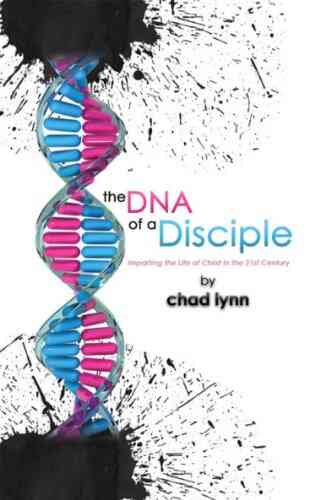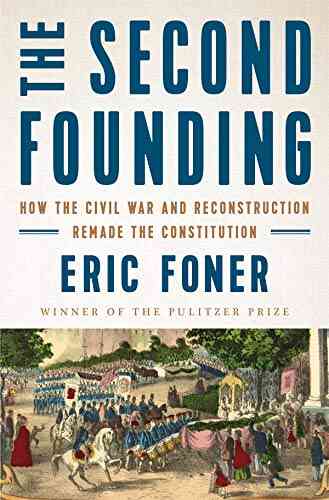How The Civil War And Reconstruction Remade The Constitution

The Civil War was a defining moment in American history. It not only tore the nation apart but also led to the reevaluation and reconstruction of the Constitution. This article delves into the significant changes that emerged during this tumultuous period and how they reshaped the very foundation of our government.
When the United States found itself engulfed in a brutal civil war, the principles on which it was founded came under intense scrutiny. The conflict, which began in 1861 and continued until 1865, resulted in the loss of countless lives and left the nation divided. The aftermath of the Civil War, known as Reconstruction, presented an opportunity to rebuild the nation and redefine the Constitution to ensure a more equitable and just society.
The Importance of the Civil War
The Civil War was a turning point in American history. It was not only a battle over differing socioeconomic systems but also a fight for fundamental human rights. The northern states sought to end slavery and preserve the union, while the southern states fought for their right to secede and maintain the institution of slavery. Ultimately, the Union emerged victorious, and this victory provided the opportunity to address the systemic issues that perpetuated inequality.
4.7 out of 5
| Language | : | English |
| File size | : | 9462 KB |
| Text-to-Speech | : | Enabled |
| Screen Reader | : | Supported |
| Enhanced typesetting | : | Enabled |
| X-Ray | : | Enabled |
| Word Wise | : | Enabled |
| Print length | : | 254 pages |
Impact on the Constitution
The Constitution is the cornerstone of American democracy. It outlines the fundamental rights and responsibilities of citizens and guides the operations of the government. However, prior to the Civil War, the Constitution contained several provisions that upheld and protected the institution of slavery, such as the Three-Fifths Compromise and the Fugitive Slave Clause.
The abolition of slavery necessitated significant changes to the Constitution. The Thirteenth Amendment, ratified in 1865, abolished slavery and involuntary servitude, striking down the foundation upon which the southern economy was built. This groundbreaking amendment transformed the Constitution by recognizing the inherent right to freedom for all individuals.
Reconstruction and the Fourteenth Amendment
Following the Civil War, the process of Reconstruction aimed to rebuild the southern states and reintegrate them into the Union. This period also presented an opportunity to address the social and political disparities that were prevalent in the post-war era.
The Fourteenth Amendment, ratified in 1868, was a pivotal addition to the Constitution during Reconstruction. It granted citizenship to all individuals born or naturalized in the United States and provided equal protection under the law. The amendment was a direct response to the denial of basic rights to newly freed slaves and sought to establish a more just and equal society.
The Fifteenth Amendment and Voting Rights
The fight for equality did not end with the Fourteenth Amendment. The Fifteenth Amendment, ratified in 1870, prohibited the denial of voting rights based on race, color, or previous condition of servitude. This amendment was a significant step towards universal suffrage and played a crucial role in empowering African American citizens.
Legacy and Ongoing Challenges
The changes brought about by the Civil War and Reconstruction were monumental, but they did not completely eradicate the deep-rooted racism and inequality that had plagued the nation for centuries.
Even though the Constitution underwent significant enhancements during this period, many states implemented discriminatory practices such as poll taxes, literacy tests, and grandfather clauses to hinder African Americans from exercising their newly granted rights. It took additional civil rights movements, Supreme Court decisions, and legislative acts to dismantle these oppressive practices and ensure equal protection under the law for all citizens.
The Civil War and Reconstruction were transformative periods in American history, leaving an indelible mark on the Constitution. The changes and amendments enacted during this time were crucial steps towards ensuring equality, justice, and freedom for all citizens of the United States.
The power of the Constitution lies in its ability to adapt to the evolving needs of society. The remaking of the Constitution during the Civil War and Reconstruction was a testament to this adaptability and has left a lasting legacy that continues to shape the nation today.
4.7 out of 5
| Language | : | English |
| File size | : | 9462 KB |
| Text-to-Speech | : | Enabled |
| Screen Reader | : | Supported |
| Enhanced typesetting | : | Enabled |
| X-Ray | : | Enabled |
| Word Wise | : | Enabled |
| Print length | : | 254 pages |
“Gripping and essential.”—Jesse Wegman, New York Times
An authoritative history by the preeminent scholar of the Civil War era, The Second Founding traces the arc of the three foundational Reconstruction amendments from their origins in antebellum activism and adoption amidst intense postwar politics to their virtual nullification by narrow Supreme Court decisions and Jim Crow state laws. Today these amendments remain strong tools for achieving the American ideal of equality, if only we will take them up.
Do you want to contribute by writing guest posts on this blog?
Please contact us and send us a resume of previous articles that you have written.




















Light bulbAdvertise smarter! Our strategic ad space ensures maximum exposure. Reserve your spot today!

 Jacob HayesDramas By Victor Hugo Cromwell The Burgraves: A Tale of Power, Betrayal, and...
Jacob HayesDramas By Victor Hugo Cromwell The Burgraves: A Tale of Power, Betrayal, and...
 Dustin RichardsonExperience the Enigma: Lyon Roar Zodiac Assassins - Unleashing Fear and Power
Dustin RichardsonExperience the Enigma: Lyon Roar Zodiac Assassins - Unleashing Fear and Power
 Cormac McCarthyThe Ashtons Guild Hunter Royal House Of Shadows Rock Kiss Others By Nalini...
Cormac McCarthyThe Ashtons Guild Hunter Royal House Of Shadows Rock Kiss Others By Nalini... Derek BellFollow ·13.3k
Derek BellFollow ·13.3k Aleksandr PushkinFollow ·15.4k
Aleksandr PushkinFollow ·15.4k Vince HayesFollow ·8.8k
Vince HayesFollow ·8.8k Yukio MishimaFollow ·18.7k
Yukio MishimaFollow ·18.7k Russell MitchellFollow ·16.4k
Russell MitchellFollow ·16.4k Derek CookFollow ·9k
Derek CookFollow ·9k Esteban CoxFollow ·2k
Esteban CoxFollow ·2k J.D. SalingerFollow ·18.6k
J.D. SalingerFollow ·18.6k

 Dwayne Mitchell
Dwayne MitchellSaving The Maldives: The Floating Island
The Maldives, known for...

 Ethan Mitchell
Ethan MitchellManaging The Production Hour: Mastering Efficiency and...
As businesses strive to meet growing demands...

 Virginia Woolf
Virginia WoolfThe Food Lab: Better Home Cooking Through Science
Have you ever wondered why some...

 Jeff Foster
Jeff FosterThe Darling Songbirds: The Songbirds of Darling Bay
When it comes to enchanting melodies and...

 Eli Blair
Eli BlairDeath And New Life In Pandemic
The COVID-19 pandemic has brought about...

 Dave Simmons
Dave SimmonsThe Unstoppable Nathan Run: A Thrilling Journey Into John...
When it comes to gripping thriller novels,...

 Amir Simmons
Amir SimmonsDistant Horizon Backyard Starship: Exploring the Cosmos...
The mysteries of the universe...

 Simon Mitchell
Simon MitchellUnveiling the Secrets: The DNA of a Disciple - A...
Do you ever wonder what it takes to become a...

 Samuel Taylor Coleridge
Samuel Taylor ColeridgeThe Epic Tale of Snake River Slaughter: Matt Jensen, The...
The Snake River, winding through the...

 Ray Blair
Ray BlairThe Ultimate Covid Alphabet For Teachers: The Key to a...
With the Covid-19 pandemic still ongoing,...

 Gage Hayes
Gage HayesFor The Sake Of Family: Why Prioritizing Our Loved Ones...
Family is the backbone of...
4.7 out of 5
| Language | : | English |
| File size | : | 9462 KB |
| Text-to-Speech | : | Enabled |
| Screen Reader | : | Supported |
| Enhanced typesetting | : | Enabled |
| X-Ray | : | Enabled |
| Word Wise | : | Enabled |
| Print length | : | 254 pages |


















